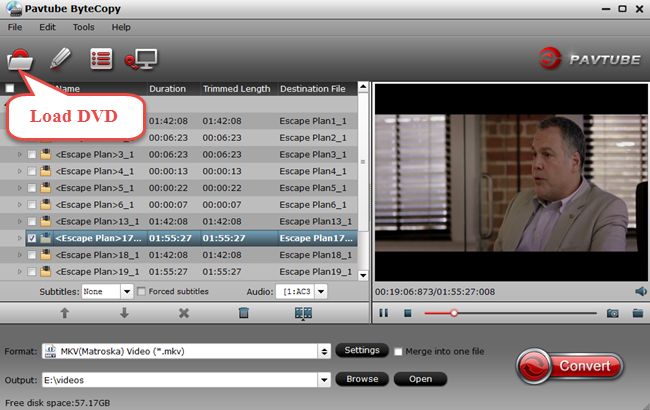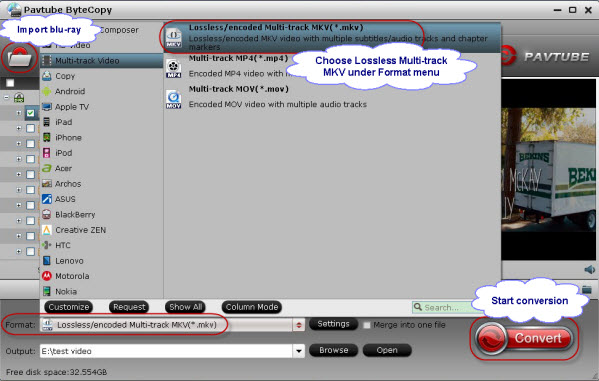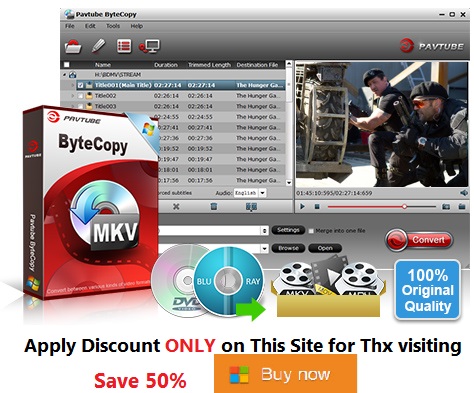Cloud storage sounds like it has something to do with weather fronts and storm systems, it really refers to saving data to an off-site storage system maintained by a third party. Cloud Based Data Storage Services. Comparison of the Top Secure Solutions and Services. Cloud storage comes in all shapes and forms. Direct comparison between providers is often difficult because they focus on different aspects of the service.
Part 1 . Cloud Storage Advantages
Cloud storage has several advantages over traditional data storage. For example.
- Storing your data on a cloud storage system, to get to that data from any location that has Internet access. You need’t to carry around a physical storage device or use the same computer to save and retrieve your information.
- Copying virtual machine images from the cloud to on-premises locations or to import a virtual machine image from an on-premises location to the cloud image library.
- Storaging availability and data protection is intrinsic to object storage architecture, so the additional technology, effort and cost to add availability and protection can be eliminated.
- Using as natural disaster proof backup, as normally there are 2 or 3 different backup servers located in different places around the globe.
- Using cloud storage can cut their energy consumption by up to 70% making them a more green business. The price is less expensive, only that it incurs operating expenses rather than capital expenses.
- Providing users with immediate access to a broad range of resources and applications hosted in the infrastructure of another organization via a web service interface.

Part 2. Top 20 Best Cloud Storage
Here is a rundown of 20 of the top providers and some of their respective benefits.
1. SugarSync
SugarSync which represents a hefty reduction. For that, though, you get backup for unlimited machines, Mac or Windows, you will make sure it’s worth it. You can add or edit a file on one device and it will instantly be available on another – and you can back up your existing folder structure (unlike with, say, DropBox), which makes things very convenient and straightforward.
With just a couple of clicks you can make sure that any folder is backed up in real time, so you can access them from other devices, anywhere – PC, Mac, iOS or Android. This means you can start work on a file at the office on one computer and finish it on the bus or at home on a tablet, seamlessly. It’s simple, it’s powerful and it’s still good value for money – with a 1,000GB package coming in at $55 per month, and custom plans available.
2. Carbonite
Carbonite is one of the most competitive cloud services when it comes to cost. They use the same approach for both personal and business cloud backup, targeting the home/small business user, though their business solutions are more expensive. ‘Pro’ gives you backup for unlimited workstations at $269.99 per year. They have a series of products across this range, with both hybrid and cloud backup. They also offer 7-day support, from 8.30am to 9pm every day. There’s a 15-day free trial and their hybrid backup bare metal recovery service comes with a 30-day money back guarantee.
3.IDrive
IDrive offer a ‘one stop shop’ solution that enables you to back up everything – PC, Mac, devices and even Facebook pictures into the same account. Business users can back up business computers, servers, Exchange, SQL, NAS and mobile devices.
As well as multiple device and social media backup, IDrive offers strong privacy options. Apart from 256-bit AES encryption, there’s a further option for a private key known only to you – putting your data beyond the reach of anyone else. IDrive also have an unusual way to kickstart your backup: they ship you a physical hard drive, which you copy your data to and send back to them, so you don’t have to worry about using your full bandwidth allowance for weeks on end to get a full copy in the cloud.
4.Dropbox
Perhaps the biggest and best-known name in cloud storage, Dropbox is many people’s first and last experience of a cloud provider. Dropbox syncs your files automatically and allows you to share them with your family and friends, even if they don’t have a Dropbox account. It’s supremely usable and intuitive, and files can be accessed from any device. You can share folders to collaborate on documents, though it’s not really suitable for business use – it’s designed for individuals and casual users, rather than enterprise. It’s a no-frills approach, and the privacy policy is more aligned with Google’s than, say, SpiderOak’s, but it’s a good entry-level choice if you need cloud backup.
The giant of the web, Google provides a reliable and low-cost solution for cloud storage (and much more besides). You can use Google Drive on unlimited machines, but there’s no Linux option – just Windows and Mac. The catch is privacy. Many companies are moving towards a model of charging little or nothing up-front, but monetising their customers by using their data for a variety of purposes, including advertising. Google are the masters at this, which is a double-edged sword. You get extremely cheap storage – and it’s hooked into all of their many other offerings, including email. Unfortunately, it’s not so good for keeping your information secure. Compared to the privacy-first app.
BackBlaze is designed differently to most cloud services. You simply download the software, install it, and then backup occurs automatically. There’s no need to select different files and folders. It just happens. BackBlaze hunts around your computer and finds photos, music, documents and other critical files. When your computer is not in use, it copies, compresses and encrypts them, before sending them to a secure data centre for safe keeping. What’s particularly encouraging is the lack of any limits imposed. You can back up data to the cloud from an external hard drive, at no extra cost; there are also no limits to file size or bandwidth, which sets them apart from many others in the space. BackBlaze runs in the background on Windows or Mac computers. It’s not just secure, with strong encryption; it’s also easy to use, and files can still be accessed in the cloud from your mobile device using their app.
CrashPlan works away in the background, making sure you don’t lose any vital files – music, photos and docs are continuously and automatically backed up for you.
There are three levels of backup. You can select an external hard drive for free, so all your files are kept locally on a separate disk. Although that’s a start it obviously has its limitations, so there’s also the option to back up to other trusted computers in your network (e.g. family and friends). Lastly, there’s the cloud option, which is most secure: sign up to their cloud service and you’ll get unlimited online backup, with no caps on storage, bandwidth or limits on file types. CrashPlan uses enterprise quality hardware and military-grade encryption is standard. You can continue to access your files from any device you own.
8.Mozy
Mozy is well-known and trusted in the industry, so there are plenty of testimonials and reviews to show you what their strengths are – they’re used by over 6 million individuals and 100,000 businesses around the world, who entrust over 90 Petabytes of data to them. Their ‘set it and forget it’ option means you can schedule backup for a time (or times) of day that’s convenient – it’s customisable to suit you. There’s a strong emphasis on security, with double encryption (256-bit AES or 448-bit managed Blowfish key, plus transfer with an SSL-encrypted connection). Data centres are monitored 24/7, with temperature control, backup power, seismic bracing and other safeguards you won’t hear about from most other providers. They have multiple EU data centres, so that European data can be stored in Europe.
JustCloud is one of the best providers out there. There are free mobile apps, and you can share files with friends easily. It’s a straightforward and automated service that aims to make hard drives obsolete, with a huge breadth of devices and operating systems supported. Should you need it, there’s 24/7 support, so if you have a problem there will always be someone on hand to help. There’s also unlimited file versioning, which means every new version of a document is recorded so you won’t lose a file if you make a mistake – you can always revert to an old one. Files are encrypted with 256-bit secured socket layer encryption and stored in secure data centres, monitored round the clock.
Mega’s cloud packages start at EUR 9.99 per month for 500GB, or EUR 99.99 per year. You get 50GB of free storage, and it’s available for Windows, Mac and Linux. (There’s also a new ‘Lite’ plan for low use – 200GB storage and 1TB bandwidth for EUR 4.99 a month.) Mega has only been around since 2013, but it has carved out a good reputation for itself. It has a very strong ethos of data protection, and its approach is guided by the principle that ‘security by policy’ is grossly inadequate; only security by design is sufficient in a post-Snowden world.
SOS is another great low-cost cloud solution, starting at just $5 per month for unlimited storage, or $59.99 a year. There’s a 14-day free trial and it’s available for Windows or Mac. There’s also a powerful Android app to back up everything on your mobile devices. What’s more, you can restore lost files at any time, from any device. SOS’s UltraSafe approach employs user-created keys, which are never stored in the cloud – so you and only you can access your files. (However, this does mean that if you lose your keys, your data will be unrecoverable.) Data is stored on secure, monitored servers, which are backed up to different hardware every night.
SpiderOak adopts a Zero Knowledge approach to privacy, their USP. Prices start at $7 per month for 30GB, or $84 a year; you can use it on unlimited machines and it’s available for Windows, Mac and Linux. Plans go up to 5TB, with 1TB just $12 a month. For that, as well as the impressive amount of space, you also get sole control of your data: nothing unencrypted is stored on their servers. It’s an approach that has been endorsed by Edward Snowden, who compares them (very favourably) with DropBox. SpiderOak’s policy is that privacy should come as standard, and that companies that don’t want to give it to you invariably stand to make money from your data.
Norton is a big name in online security thanks to their antivirus and other products, and they’ve branched out into cloud storage too. It’s also straightforward to transfer files between computers, and retrieve backed up files from any machine via a secure, password-protected web page. Previous backups are held for 90 days, so if you need to revert to an older version in that time, they’re available. Files are automatically compressed at backup to save space.
SafeCopy offers a lot of storage at a reasonable price. You get 3GB for free, after which it’s $4.17 a month ($50 a year) for up to 200GB. There’s a 30-day free trial, and you can use it from an unlimited number of machines (Windows and Mac). Files are protected with 448-military grade encryption, and most of the heavy lifting is done by SafeCopy’s own servers, so the CPU overhead is low. There’s unlimited versioning, you can backup multiple folders (unlike Dropbox, for example) and you can restore files from anywhere. If you delete a file on your computer, it remains on SafeCopy, unless you manually delete it too – so it’s a great way to avoid mistakes. It’s also easy to share files with friends and family. SafeCopy comes with support for 15 languages.
Livedrive provide unlimited storage for $8 a month or $48 a year. There’s a 14-day free trial, but no free storage allowance, and you can use it on only one machine. Windows and Mac are supported. Livedrive is one of the fastest-growing cloud storage services. Their Briefcase option is a step up from the basic backup; it’s easy to set up and there are apps to enable you to see your files on any iOS, Android or Windows 8 device. Livedrive is also aimed at resellers who provide backup, cloud storage and sync products to their customers. There’s a flat fee per month for this, with no per-customer billing.
pCloud gives you a generous 10GB of free storage across unlimited machines, and supports Windows, Mac and Linux operating systems. If you need more, it’s only $4.99 a month or $49.99 a year for 100GB. pCloud lets you access documents from your computer, from a smartphone or device, or even from a web browser. There’s an option to up security and encrypt sensitive files with pCloud Crypto, which will cost a further $3.99 a month. Once active, files can be added to your Crypto folder and locked with a password. Encryption is client-side, so pCloud itself doesn’t have access to your files.
OpenDrive offer unlimited space on unlimited machines from $9.95 per month or $99 per year, supporting Windows or Mac systems. You get 5GB of free storage. As well as desktop versions, there’s an Android app you can download to back up and share files quickly and easily from a tablet. Files and folders of any size can be shared, and media files played directly from the cloud. ‘Hotlinking’ enables you to link to cloud-based files in emails and documents, and it’s easy to add people to shared folders. This does, of course, come at the expense of some data security.
Altdrive offers no free storage and you can only use it on one machine, but there is a 30-day trial and it works with Mac, Windows and Linux (as well as the Solaris operating system). You can buy unlimited storage for $4.45 per month, or $44.50 a year. Altdrive supports very large files – up to 4GB – making it an option for businesses that routinely deal with such documents. There’s a strong emphasis on security, which is one of the reasons it does not offer syncing or sharing of files (which are offered by platforms like Dropbox); they state that ‘we cannot recommend them for sensitive files because they have ongoing unresolved security issues.’
19.Zoolz
Zoolz specialise in long-term storage, stating that they will keep your data in the cloud for a lifetime–and that other companies do not have this long-term outlook. Before documents are sent to their servers they are encrypted with 256-bit military-grade AES encryption. There are plenty of features such as scheduling and setting upload speed limits, and there’s a hybrid option if you want a second backup on a local server.
Although you can restore individual files or everything, should you need to, the process incurs a delay of 3-5 hours–something Zoolz state is to do with their long-term approach, without explaining why. This, along with the higher-than-usual cost, may put off some prospective customers.
20. ADrive
ADrive is a pretty flexible option, supporting Windows, Mac and Linux systems. You can access files from anywhere, and share or edit them online. There are good search tools, and folder upload for simplicity. Premium and business packages offer online collaboration, file history recovery, public file expiration and SSL encryption. However, premium/business packages also offer ‘No 3rd Party Advertisements’, which suggests the basic package will include ads – not something many people will want to sign up for. You can access your files from anywhere with an internet connection, though, and there are also Android and iOS apps to download, as well as desktop software.
It’s therefore worth looking ahead to see how much you will have to pay, and how much space it will get you. Aside from that, you should look at what operating systems are supported, and whether you will be able to back up and use files from more than one files formats converter machine – if you are working on documents at home as well as in the office, The flipside of this is that you will bear greater responsibility for safeguarding your data, and there are sometimes usability implications (sharing and collaborating on files becomes harder if you also have to manage encryption keys, for example).
Source: http://cloudnewsdaily.com/cloud-storage/
Part 3. DVD And Blu-ray Rip/Backup/Copy Tips
 |
 |
 |
 |
 |
|
Amazon Cloud Drive
|
Box Cloud Storage |
Dropbox
|
NAS
|
Google Drive
|
| Blu-ray to Amazon | Movies to Box | DVD to Dropbox | Plex to NAS | Blu-ray to Google Drive |
Part 4. Software Recommendation
How about streaming DVD/Blu-ray/ video to Cloud Storage, can your play Cloud Storage files for your devices?
| Blu-ray/DVD Backup Software | Top 1. Pavtube ByteCopy | Top 2. Pavtube BDMagic | Top 3. Pavtube Video Converter Ultimate | Top 4. iFastime Video Converter Ultimate | Top5.MakeMKV |
| Price | $42.00 | $39.20 | $65.00 | $45.95 | $50 |
| Review | Article | Article | Article | Article | Article |
| Download | Windows /Mac | Windows /Mac | Windows /Mac | Windows /Mac | Windows /Mac |
Part 5. How to Transcode and Stream DVD/Blu-ray to Cloud Storage (Example for- ByteCopy )
Step 1: Load 4K video into the program
Launch the program on your computer, click “File” menu and select “Add Video/Audio” or “Add DVD/Blu-ray from folder” to import 4K video files into the application.

Step 2: Define output format
Click “Format” bar, from its drop-down options, select right formats as output video to your media player compatible file formats such as “HD Video”/”TV”/”3D” > “H.264 HD Video(*.mp4)” which is a friendly format used by most device .

Tips of three ways to backup Blu-ray . Method One: Losslessly Backup Blu-ray with original structure, Method Two: Losslessly Copy Blu-ray Main Movie and leave out extras, Method Three: Losslessly Backup Blu-ray to MKV/MP4/AVI/MOV/WMV…
Step 3: Begin the conversion process
After all the settings is completed, hit right-bottom “Convert” button to start video/DVD/Blu-ray to Cloud Storage media players streamable formats conversion process.
Related Articles:
- Comparsion between Xbox One Cloud and PS4 Cloud
- Upload movies to My Cloud Mirror (Gen 2)
- 2016 Best Mac Online Backup Cloud Services Reviews
- Which Cloud Storage Should you Choose?
- How to Store various Valentine Movies onto WD My Cloud EX2 Personal Cloud Server?
Have more questions about Pavtube, please feel free to contact us >> or leave a message at Facebook.


Comments